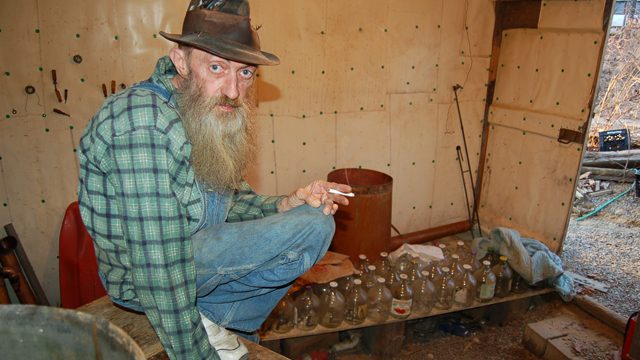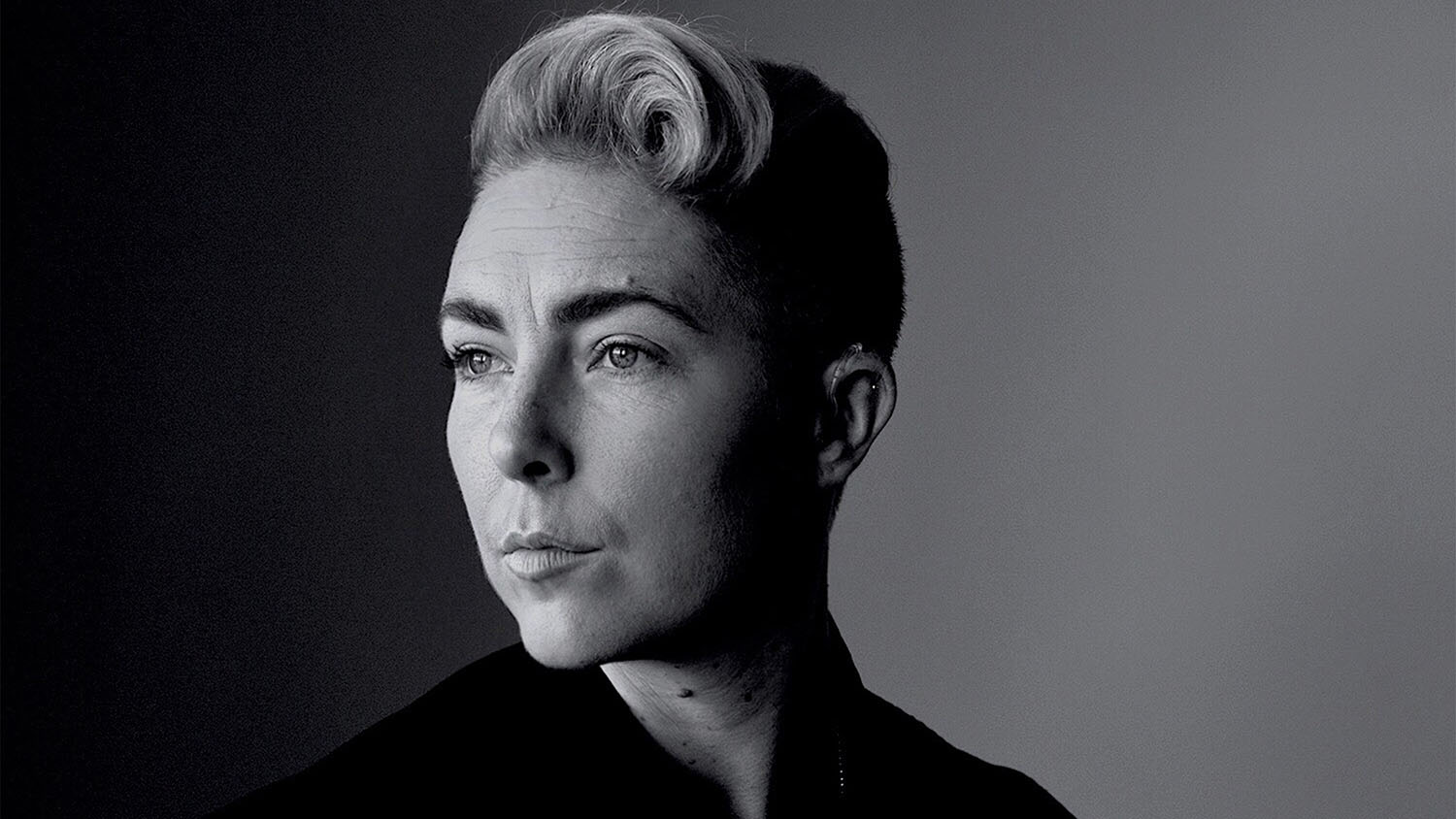Documenting ‘A Hell of a Life’: NC State video producer’s documentary delivers raw look at moonshiner Popcorn Sutton

When video of a moonshiner named Popcorn surfaced in the mid-2000s, it didn’t take long for it to circulate.
Neal Hutcheson’s rough edit of Popcorn Sutton making his “Last Dam Run of Likker” was intended to be for local sales from Sutton’s junk shop in Maggie Valley. However, when the VHS tape hit the streets, its popularity quickly spread beyond the North Carolina mountains. Hutcheson, a video producer at NC State, was at a coffee shop on Hillsborough Street in Raleigh — less than a month after the tape came out — when someone asked him about the video.
“It’s really Popcorn’s allure that made that happen,” Hutcheson said.
That video, derived from the same source footage Hutcheson used for his Emmy Award-winning documentary The Last One in 2008, only told part of Sutton’s story. In his most recent film project, Hutcheson has created a broader picture. Popcorn Sutton — A Hell of a Life explores Sutton’s moonshine enterprise, rise to notoriety and fall into the legal and health troubles that led to his defiant suicide.
Hutcheson will screen the documentary at 7 p.m. Thursday, Sept. 3, at NC State’s D.H. Hill Library (West Wing Auditorium). The Triangle-area premiere is free and open to the public. At a separate event that day, Hutcheson will present and discuss clips from several of his other documentaries in the West Wing Auditorium. The NCSU Libraries event is aimed at further exploring themes in the university’s Common Reading selection, “Stand Up That Mountain,” by Jay Erskine Leutze. The 3 p.m. event is also free and open to the public.

Hutcheson first introduced viewers to Sutton in Mountain Talk, a film he produced in 2002 with renowned NC State linguist Walt Wolfram and the university’s North Carolina Language and Life Project. Through the film, one in a series of documentaries he’s produced through the NCLLP, Hutcheson and Sutton got to know each other fairly well. They continued visiting one another after production, forming a friendship.
“He seemed to enjoy my visits as much as I enjoyed visiting with him,” Hutcheson said.
As their relationship matured, Hutcheson kept filming with Sutton, who allowed him a rare look at his process of making moonshine.
The Last One
Part of their deal was that Hutcheson would make a VHS tape that Sutton could sell out of his junk shop. The tape, with Sutton’s suggested title, “This is the Last Dam Run of Likker I’ll Ever Make,” became a cult classic.
“It kind of blew up and traveled very quickly,” Hutcheson said. “It garnered him a lot of attention.”
Hutcheson used the same source footage he shot with Sutton to create The Last One, a 57-minute PBS special, in 2008. Produced through Sucker Punch Pictures, an independent production company Hutcheson founded, the film won “Best Cultural Documentary” at the 2009 Southeast Emmy Awards.
The films began lifting Sutton up as a folk hero, a status only furthered by his appearances on TV shows and other broadcasts. Hutcheson continued filming with him, and coupled with other footage he collected from 2000-2009, created what he believes is a more authentic view of Sutton through “A Hell of a Life.”
Hutcheson said while The Last One is about making moonshine, A Hell of Life delivers a more raw, privileged view of Sutton’s life and the spaces he inhabited, delving deeper into the entirety of his moonshine operation, his popularity, his run-in with the law and his death in 2009.

Behind the Camera
After earning a degree in communication from NC State’s College of Humanities and Social Sciences in 1992, Hutcheson got his start in video production with the university.
Through a humanities extension program, communication professor Jim Alchediak hired him to help produce educational videos throughout the U.S. and overseas.
“As a fresh graduate, I was writing scripts for educational programs and was doing some producing,” Hutcheson said.
He’s been working with the N.C. State linguistics program since the mid-1990s, where he’s helped produce documentaries about life on the Carolina coast, the Lumbee dialect, and Appalachia stories, songs and back-porch music.
Hutcheson said he looks at all of his films as one body of work that overlap with the goal of preserving and sharing culture. He and fellow NC State video producer Danica Cullinan will try to do the same with the Language and Life Project’s next documentary, Talking Black in America, a focus on African-American heritage and history through speech.
- Categories:


